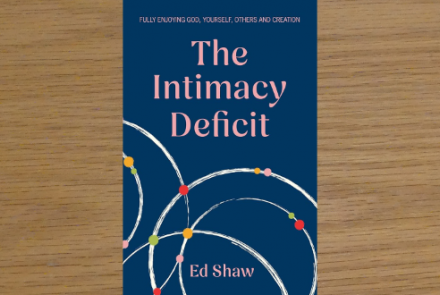Review "finding your best identity" by Andrew Bunt
There is much debate between Christians about whether it’s right for a Christian with same-sex attractions to use a term like “gay”, “lesbian” or “trans”. Some argue that these words have become all-encompassing identity-forming words and so those who are “in Christ” are denying their God-given identity by labelling themselves in this way. Others argue that these terms are more meaningful in our culture than clumsy alternatives like same-sex attracted, and that they can be used in a merely descriptive way that is compatible with holding on to a primary identity received from God. These kinds of conversations show that we need clarity on what we mean by identity. This book by Andrew Bunt, while steering clear of controversies surrounding terminology, helps the reader particularly to explore the question, “How do I find who I am?”
He starts with a helpful definition of identity as being our “controlling self-understanding”. The idea of our primary identity being a self-understanding that exerts control over us distinguishes it from lesser descriptions of ourselves (eg ethnicity, occupation or nationality).
He then goes on to explain and critique the two prevailing approaches to identity formation in Western culture - “others decide” and “I decide”. He sees “others decide” exemplified in the life of celebrities, where the number of views or the tide of public opinion can elevate or decimate the reputation of those in the public arena. Whilst ordinary people might not experience quite the highs and lows of this, if we (perhaps unthinkingly) place our value in the hands of those around us, we are surrendering our security into their hands. This leaves us under pressure to keep performing well and with that nagging insecurity that others might change their evaluation of us at any time. Applying this particularly to LGBTQ+ people, Andrew shows that this approach to identity-formation can feed shame in those who don’t “fit the mould”.
In the alternative popular approach to identity formation, “I decide”, we are encouraged to look within to find out who we really are. Andrew cites the Disney film “Frozen” as a perfect example of this approach, with Elsa singing “Let it go” as she expresses her inner self, having kept it hidden for so long. Despite the appeal of this approach, Andrew describes how both the lack of clarity and changing nature of our thoughts and feelings can make this source of identity confusing and hard to find clarity from what are often conflicting voices within.
After revealing the flaws in both “others decide” and “I decide”, Andrew then argues persuasively that a God-given identity allows us to follow in the footsteps of Jesus by receiving who we are from the One who knows us better than anyone else, including ourselves. An identity received from our creator gives every person inherent value. We can relax in the security of knowing that our identity is fixed - it doesn’t depend on our performance, on our thoughts or feelings, or on what others think about us.
He then goes on to apply the “God decides” approach specifically to those of us who struggle with their sexuality or gender. He shows how an identity received from God gives us freedom from others’ judgements, freedom from our own insecurities and freedom from shame, as we realise that we are defined by the Father’s love rather than our unusual desires.
Andrew Bunt has written a book on identity that is concise, clear and practical. Whilst he applies his arguments particularly to matters of sexuality and gender, the principles in the book would be of great value to every person made in the image of God. There are study questions at the end of each chapter, which would help with reflection and unpacking of the material. These could be used to help meditate upon the material, either personally before God, in a one-to-one setting, or in a small group setting. There is much profound truth covered in a mere 112 pages. Our challenge as we study it will be to apply it carefully to our lives in a way that reveals where we have misplaced our identity and how we receive it fully from the One who created our inmost beings (Psalm 139:13).
This article was originally published in the Winter 2022 edition of the TFT magazine, Ascend. Click the button below to download your copy.
Download the Winter 2022 edition of Ascend






